Introduction to Forex Trading Platforms
Navigating the vast ocean of Forex trading requires not just skill and strategy but also the right tools for the job. At the heart of a trader’s arsenal is their Forex trading platform, a software interface that connects them with the global currency markets. This digital gateway is where all the action takes place—from analyzing market trends to executing trades and managing risk. With a plethora of platforms available, each promising a unique set of features and benefits, making an informed choice becomes crucial. This article aims to demystify the top Forex trading platforms, comparing their functionalities, pros, and cons, to guide both novice and seasoned traders towards the best fit for their trading endeavors.

Key Features to Look for in a Forex Trading Platform
Choosing the right platform is akin to finding a trusty steed for battle; it needs to be reliable, efficient, and well-suited to your style of combat. Here’s what to look for:
User Interface and Experience
The user interface is the trader’s cockpit; it should be intuitive yet comprehensive, allowing for quick access to key functions without overwhelming the user. For example, MetaTrader platforms are renowned for their customizable interfaces, enabling traders to tailor the layout to their preferences, which can significantly enhance decision-making speed during high-stress trading sessions.
Analytical Tools
Good trading decisions are backed by thorough analysis. Platforms vary in their offering of analytical tools, with some providing basic charts and indicators, while others offer a suite of sophisticated analytical instruments. The Thinkorswim platform, for example, stands out for its state-of-the-art technical analysis tools, offering over 400 charting options to suit the needs of the most analytical minds.
Security Measures
In the digital age, security cannot be overstated. A robust platform employs encryption and follows regulatory standards to safeguard your financial and personal data. Platforms like Interactive Brokers pride themselves on their security measures, utilizing physically secured servers and encryption protocols to protect user data.
Mobile Trading Support
The ability to trade on the go has become a necessity. A mobile-friendly platform ensures that you never miss a trading opportunity, regardless of where you are. cTrader, for instance, offers a sleek and fully functional mobile app, allowing traders to execute and manage trades from their smartphones with ease.
Customer Service
The quality of customer support can make or break your trading experience. Platforms that offer 24/7 support through multiple channels, including live chat, email, and phone, ensure that help is always at hand when you need it most.

MetaTrader 4 (MT4): The Veteran’s Choice
MT4 has stood the test of time, favored by beginners and experienced traders alike for its reliability, ease of use, and extensive support for custom indicators and Expert Advisors (EAs). Its user-friendly interface makes it an excellent choice for those new to Forex trading, while its depth of functionality satisfies the demands of the more experienced. Despite its age, MT4’s community support is unparalleled, boasting a vast repository of free and paid tools and resources.
MetaTrader 5 (MT5): The Advanced Successor
Building on the legacy of MT4, MT5 caters to traders looking for more advanced features and greater flexibility. It supports more timeframes, offers improved charting capabilities, and integrates economic calendars directly into the platform. MT5 also facilitates access to a wider range of markets, including commodities, stocks, and cryptocurrencies, making it a versatile choice for traders diversifying their portfolios.
cTrader: The Trader’s Alternative
cTrader distinguishes itself with a clean, modern interface and superior order execution capabilities. It appeals to both novice and seasoned traders with its user-friendly design and advanced order management features. Its standout feature is the depth of market (DOM) visibility, providing insights into market liquidity and depth for precision trading.
Thinkorswim: For the Analytically Minded
Thinkorswim is a powerhouse of analytical tools, catering to traders who base their decisions on comprehensive market analysis. Its rich set of features includes customizable charts, a wide array of technical indicators, and detailed back-testing capabilities. Moreover, Thinkorswim offers a simulated trading environment, allowing traders to hone their strategies without financial risk.

Interactive Brokers: The Professional’s Platform
Geared towards the professional market, Interactive Brokers offers a broad spectrum of trading instruments beyond Forex. Its platform is robust, offering in-depth analysis tools, risk management features, and access to global markets. The steep learning curve is offset by its unparalleled range of functionalities, making it a go-to for professional traders and institutions.
Comparison of Trading Fees
Trading costs can eat into profits, making fee structures a critical consideration. Platforms like MT4 and MT5 tend to offer competitive spreads and commission rates, especially through ECN brokers. In contrast, platforms catering to professional traders, such as Interactive Brokers, might offer lower costs per trade but may require higher minimum account balances or monthly activity fees.
Ease of Use and Interface Comparison
A direct comparison reveals that platforms like cTrader and MT4 prioritize ease of use, featuring clear, navigable interfaces suitable for traders at any experience level. In contrast, Thinkorswim and Interactive Brokers offer more complex interfaces that, while potentially daunting to newcomers, provide advanced traders with the depth of information and tools they require.
Analytical Tools and Resources
When it comes to analytical capabilities, Thinkorswim arguably leads the pack with its extensive array of charting tools, followed closely by MT5. However, for traders who prioritize speed and efficiency over depth of analysis, simpler platforms like MT4 or cTrader might be more appropriate.

Security Features Across Platforms
All the platforms discussed take security seriously, employing state-of-the-art encryption and adhering to regulatory standards. However, the exact protocols and compliance measures can vary, so traders should perform due diligence to ensure their chosen platform meets their security expectations.
Mobile Trading Capabilities
Mobile trading is well-supported across all platforms, with each offering apps for iOS and Android devices. The key difference lies in the user experience and functionality of these apps, with some platforms offering nearly all the same features as their desktop counterparts, while others provide a more limited set.
Customer Support and Service
The level and quality of customer support can vary significantly between platforms. MetaTrader platforms, for example, benefit from a vast community of users where peer-to-peer support is abundant. In contrast, platforms like Interactive Brokers provide professional-grade support, including direct access to trading specialists.

Community and Educational Resources
Community support and educational resources are invaluable, especially for those new to Forex trading. Platforms like MT4 and MT5 offer extensive forums and educational materials, while Thinkorswim stands out for its live webinars and training sessions aimed at enhancing trading skills.
Account Types and Options
The availability of different account types, such as demo accounts, live accounts, and more specialized options like ECN accounts, allows traders to choose a setup that best fits their needs. Demo accounts are particularly useful for beginners, providing a risk-free way to gain experience in the Forex market.
Forex Trading Platforms: Making Your Choice
Selecting the right Forex trading platform involves weighing various factors, including your trading style, experience level, and the specific features you value most. Whether you prioritize analytical tools, user experience, or cost, there’s a platform out there that meets your needs.

Future Trends in Forex Trading Platforms
As technology advances, we can expect Forex trading platforms to become even more sophisticated, offering greater analytical capabilities, enhanced security measures, and even more seamless mobile trading experiences. Staying informed about these trends will ensure that you remain at the cutting edge of Forex trading.

FAQs about Forex Trading Platforms
What is a Forex trading platform?
A Forex trading platform is a software interface provided by currency brokers to their clients to give them access as traders to the Forex market. These platforms offer tools for analyzing the market, as well as making and managing trades in real time.
How do I choose the best Forex trading platform for me?
Choosing the best Forex trading platform depends on your specific trading needs and preferences. Consider factors like ease of use, available analytical tools, security measures, mobile trading support, customer service, and fee structures. It’s also beneficial to try out platforms through demo accounts to get a firsthand feel of their features.
Are Forex trading platforms secure?
Yes, reputable Forex trading platforms implement robust security measures, including data encryption and adherence to regulatory standards to protect users’ personal and financial information. However, traders should always conduct their own research to ensure a platform’s security measures meet their expectations.
Can I trade on a Forex platform without any experience?
While it’s possible to start trading on a Forex platform without experience, it’s not recommended. Forex trading involves significant risk, and without a solid understanding of the market and trading principles, you’re more likely to incur losses. Many platforms offer demo accounts and educational resources to help beginners learn the ropes before risking real money.
What is the difference between MetaTrader 4 and MetaTrader 5?
MetaTrader 4 (MT4) is widely recognized for its simplicity, reliability, and focus on Forex and CFD trading. MetaTrader 5 (MT5), on the other hand, offers more advanced features, including additional timeframes, improved analytical tools, and the ability to trade stocks and futures, making it a more versatile platform for accessing multiple financial markets.
Do all Forex trading platforms offer mobile apps?
Most leading Forex trading platforms offer mobile apps, allowing traders to manage their accounts and trade from anywhere. These apps vary in functionality and user experience, so it’s advisable to test them to find one that suits your mobile trading needs.
Is it important to use a platform with a demo account?
Yes, using a platform with a demo account is highly recommended, especially for beginners. Demo accounts allow you to practice trading in a risk-free environment, using virtual money while gaining experience with the platform’s tools and features. They are also useful for more experienced traders looking to test new strategies.
How do trading fees on Forex platforms work?
Trading fees on Forex platforms can come in various forms, including spreads (the difference between the buy and sell price), commissions (a fixed fee per trade or based on the volume traded), and overnight financing charges (or swaps). The fee structure varies from one platform to another, so understanding these charges is crucial to managing your trading costs effectively.
Can I trade other financial instruments on Forex trading platforms?
Yes, many Forex trading platforms also offer access to other financial instruments, such as stocks, commodities, indices, and cryptocurrencies. The range of available instruments varies by platform, with some focusing exclusively on Forex, while others provide a broader multi-asset trading experience.
How do I know if a Forex trading platform is right for me?
The best way to determine if a Forex trading platform is right for you is by assessing your trading goals, preferred trading style, and the specific features you need. Additionally, utilizing demo accounts can provide a practical way to evaluate whether a platform’s interface, tools, and overall functionality align with your requirements.
Conclusion
The choice of a Forex trading platform is a pivotal decision that can significantly impact your trading effectiveness. By considering the factors discussed in this article, you can select a platform that not only meets your immediate needs but also supports your growth as a trader. Remember, the best platform is one that aligns with your trading strategy, offers the features you need, and provides a secure and supportive trading environment.





